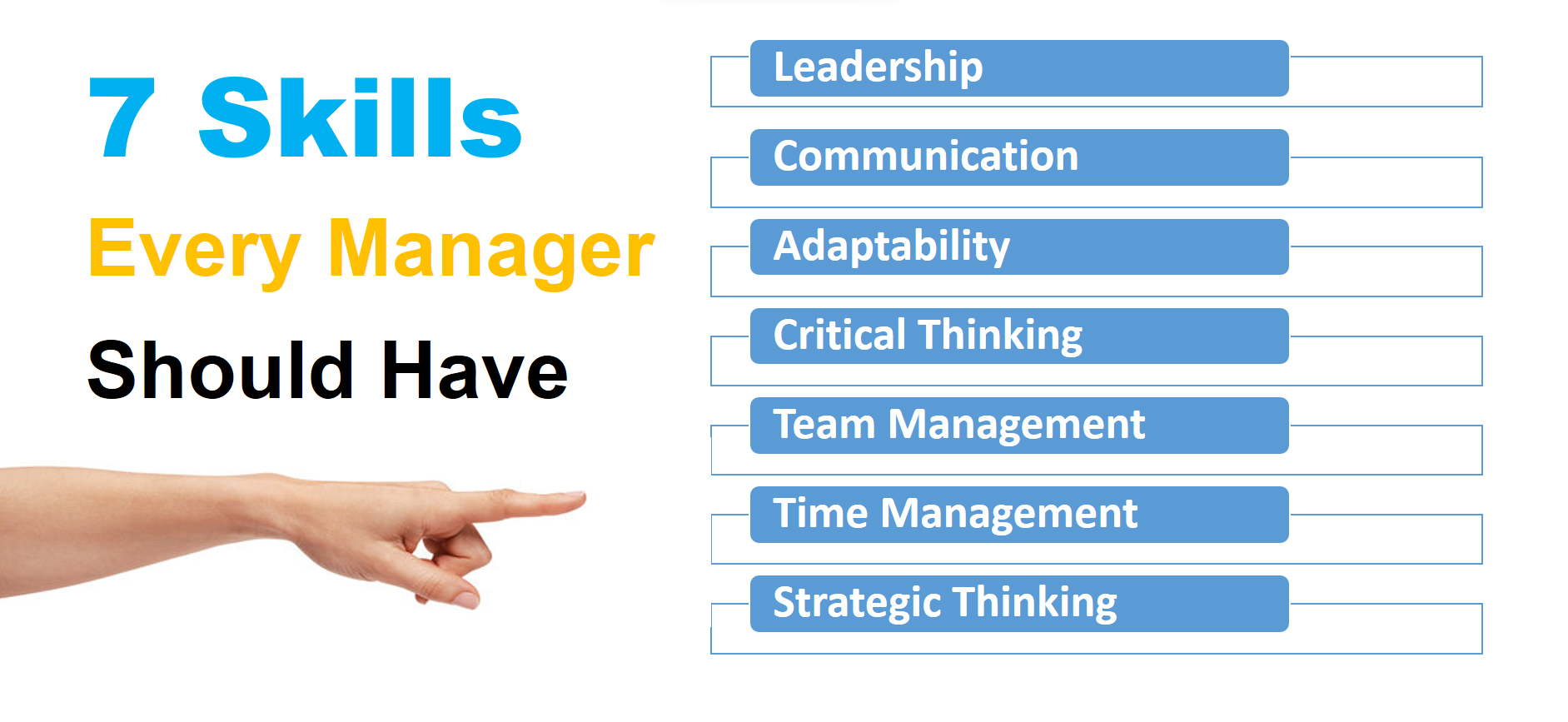Managers are the backbone of organizational success. Their abilities and expertise are pivotal in steering a company towards its goals. In this guide, we explore seven essential managerial skills important skills that every manager should have to become successful. Uncover how these proficiencies not only drive team performance but also shape the strategy of organizational success.
Leadership: A great manager not only oversees tasks but also leads by example, inspiring, motivating, and guiding the team towards a common goal. By setting a high standard themselves, they provide direction and support to bring out the best in their team.
Communication: Effective communication is essential. Managers should convey information clearly, listen actively, and encourage an open and transparent dialogue within the team.
Adaptability: In today’s dynamic work environment, adaptability is crucial for managerial success. An adaptable manager embraces change, pivots strategies when needed, and effectively navigates transitions within the team. To embody adaptability, managers should prioritize continuous learning, staying updated on industry trends, and being open to new ideas. They can implement this skill within their team by fostering a culture that values flexibility and innovation. Encouraging open discussions about change, providing necessary resources for upskilling, and acknowledging and rewarding adaptability within the team all contribute to a more agile and responsive work environment.
Critical Thinking: Managers often encounter complex problems. Having the ability to analyze situations, think critically, and make well-informed decisions is vital for effective problem-solving.
Team Management: Effectively overseeing and guiding team dynamics is crucial for managerial success. Managing team cohesion, delegation of tasks, and fostering a positive collaborative environment contribute to a team’s productivity and success.
Time Management: Managing numerous tasks and responsibilities is a norm for managers. Effective time management is not just about task prioritization and meeting deadlines; it’s about employing strategic practices to optimize productivity while promoting a healthy work-life balance. Managers can implement time management by setting clear priorities, using tools and systems for task organization, and delegating when necessary. Encouraging regular breaks, avoiding multitasking, and establishing realistic timelines for tasks also play a crucial role. Supporting the team’s well-being and work-life balance contributes to a more efficient and harmonious work environment while ensuring that both personal and professional responsibilities are effectively managed.
Strategic Thinking: Managers who can see the big picture, set clear objectives, and develop long-term plans are invaluable. Strategic thinking involves anticipating future trends and planning accordingly.
In today’s dynamic workplace, effective management requires a diverse skill set. These essential managerial skills not only drive team performance but also create an environment where productivity, innovation, and well-being thrive. Balancing these skills shapes successful management, fostering a workplace that evolves, thrives, and achieves collective goals.
Author: Md Aminul Islam, HR Professional, LinkedIn
What are most important skills for modern workplace? Click here to learn more about.


Pingback: Leadership Qualities: Mastering Success Through Example
Pingback: clindamicina vaginal